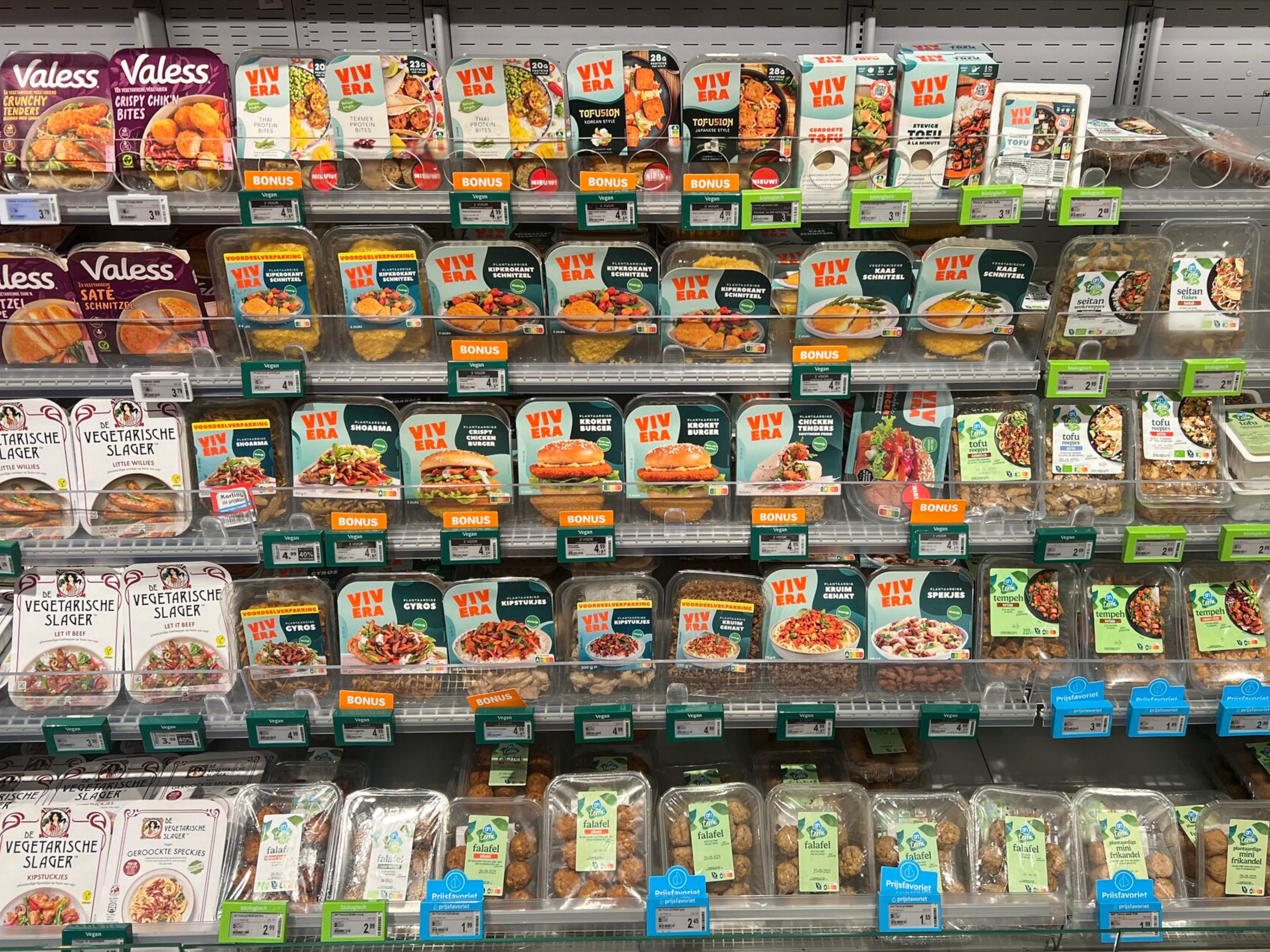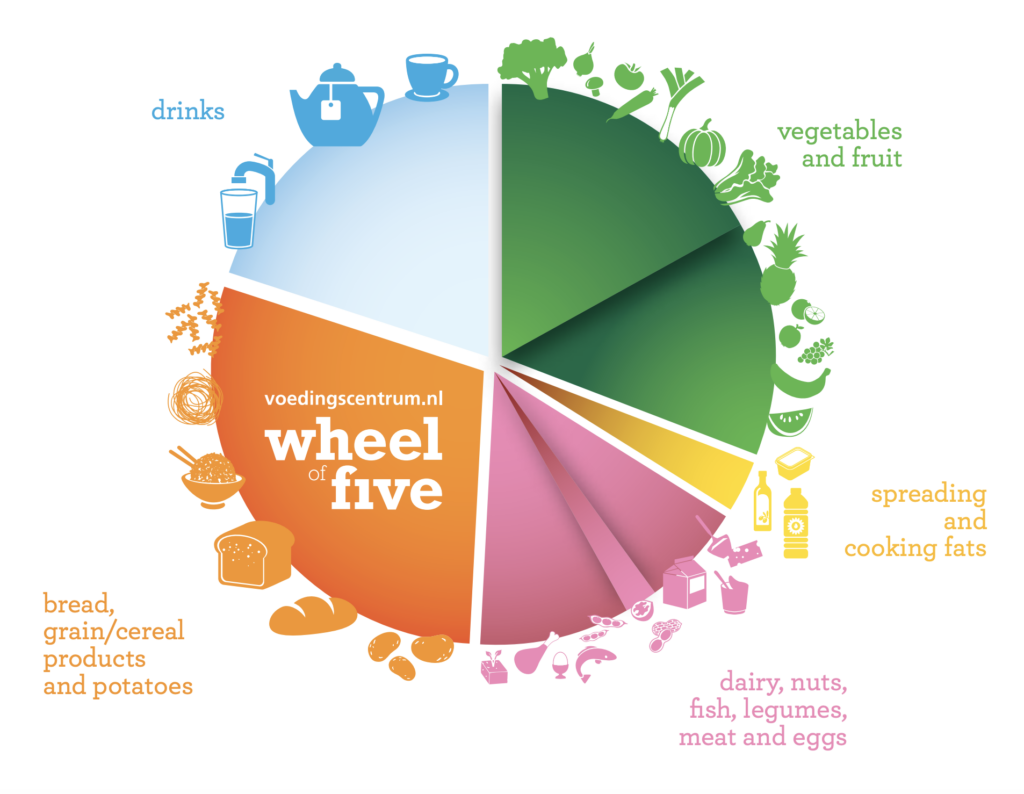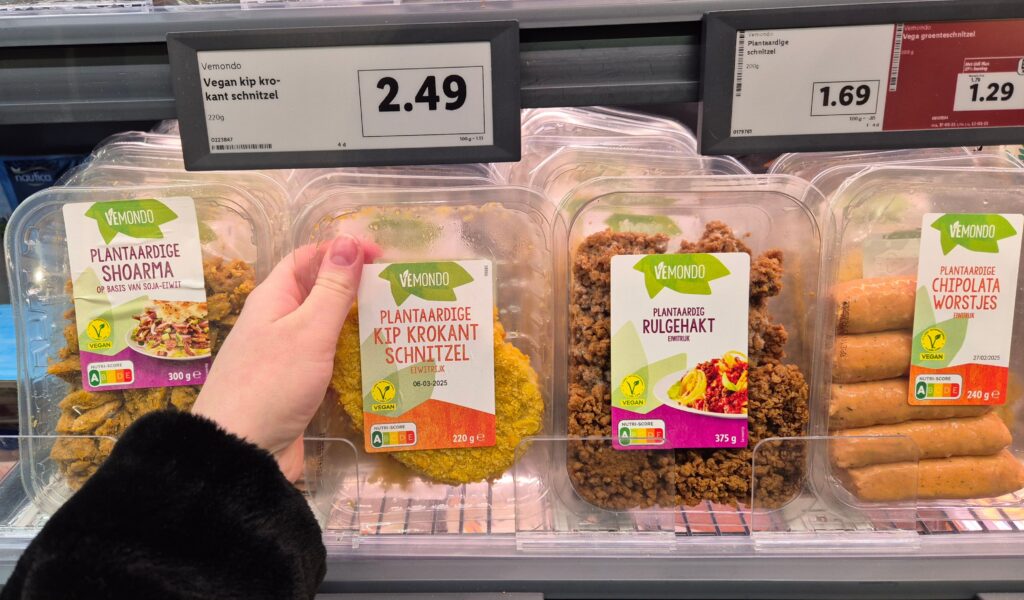
The number of vegan meat alternatives meeting the Netherlands’s national nutrition guidelines has tripled in the last two years, a new study has found.
Despite fears that ultra-processing makes plant-based meat bad for you, these products are getting healthier by the year.
A new report by ProVeg International has found that the share of vegan meat analogues that meet the Dutch dietary guidelines, also known as the Wheel of Five, has tripled in the last two years, from 9% in 2023 to 26% this year.
In contrast, only 11% of animal-derived meat products meet the Netherlands Nutrition Centre’s criteria for ready-made meat alternatives.
The number of plant-based foods that fit the evidence-based guidelines is even greater. “We conducted research at six supermarket chains. There, we found 83 meat alternatives that fit within the Wheel of Five,” said Martine van Haperen, nutrition and health expert at ProVeg Netherlands. “These include not only products that resemble meat, but also many products made from tofu, tempeh, vegetables, and legumes.”
Which products and criteria informed the study?

The Wheel of Five is the centrepiece of the Dutch nutritional guidelines, described as an ideal dietary pattern that ensures both nutrient provision and health benefits.
It comprises five broad segments, containing food groups that are nutrient-dense or boost health. The general recommendations include eating lots of fruits, vegetables and whole grains, limiting meat and consuming more plant-based food and sufficient dairy products, eating a handful of unsalted nuts and soft or liquid fats, and sufficient amounts of fluids like water, tea or coffee.
These recommendations build on evidence-based nutritional criteria, entailing foods that are high in fibre, low in saturated fat (less than 10% of energy intake) and salt, and have no added sugar.
For its analysis, ProVeg compared the nutritional values of 129 meat alternatives found in supermarkets with 54 animal-derived products, across categories like ground meat, burgers, chicken pieces, fillets and nuggets, sausages, bacon, and shawarma.
It excluded veggie burgers, cheeseburgers, tofu, tempeh and seitan as there was no direct animal-based equivalent to compare them with. The study included all branded and private-label meat analogues found at Albert Heijn, Jumbo, Lidl, Aldi, Plus, and Ekoplaza.
Its researchers determined the nutritional values of vegan alternatives using on-pack labels, and meat from standard values from the Netherlands Nutrient Database. The plant-based products were assessed for saturated fat, salt, added sugar, and fibre (as is the case with the Wheel of Five), as well as protein content and vitamin B12 and iron fortification.
For ideal comparability, the animal-derived meat products were also assessed against the criteria for ready-made meat substitutes, rather than the criteria for meat.
Over half of plant-based meat products under salt limit

Of the plant-based meat alternatives tested by ProVeg, 84% were high in protein and 83% low in saturated fat. Around two-thirds of these products were also deemed to be a source of fibre (65%), vitamin B12 (67%), and iron (68%).
The majority of conventional meat offerings (85%), meanwhile, contain too much saturated fat, which is linked to an increased risk of cardiovascular disease, inflammation, and cancers. All of them have little to no fibre, a macronutrient key for good gut health, while also containing significantly higher calories (255 kcal per 100g, versus 187 kcal for plant-based alternatives).
A common complaint against vegan products is the high sodium content. According to the Consumers’ Association, two-thirds of veggie burgers in 2023 contained too much salt. “This is one of the reasons why the perception persists that ready-made meat substitutes are often unhealthy,” explained van Haperen.
The reason why these products often contain more salt than conventional meat is that they’re pre-seasoned, eschewing the need to add salt when cooking at home. “Consumers are generally accustomed to adding salt or a seasoning mix containing salt during the preparation of unprocessed meat,” ProVeg noted. “It is therefore unclear whether consumers who eat meat have a lower salt intake than consumers who choose plant-based substitutes.”
Regardless, ProVeg’s research shows that more than half (56%) of meat-free products now fall below the maximum limit of 1.1g of salt per 100g. “Manufacturers are becoming increasingly aware of the importance of good nutritional value and are taking steps to improve it,” said van Haperen.
Reacting to the study on social media, Amy Williams, nutrition lead at the Good Food Institute Europe, said there are still some ways to go to build consistency in the category, but the pace of improvements is “really striking”.
“We know we need to increase the proportion of plants in people’s diets, and we know that’s easier said than done. Moves to build consistency and improve the nutritional quality of a wide variety of options to help do this seem to be the most leveraged approach to making this a reality,” she said. “Plant-based meat seems to be particularly promising as a way to help target and reduce intake of processed meat – a win-win both for health and sustainability.”
The post In the Netherlands, Plant-Based Meat Products Are Getting Healthier appeared first on Green Queen.
This post was originally published on Green Queen.